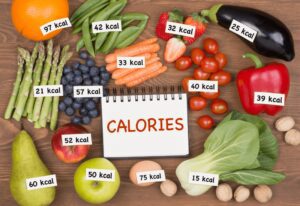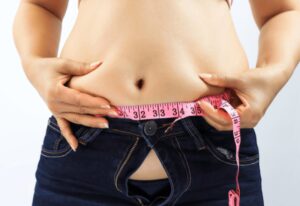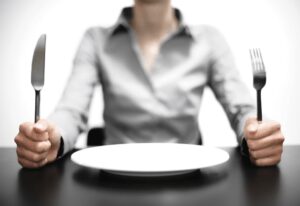How Many Calories In A Pound?
There are approximately 3,500 calories in a pound of body fat. To lose lbs., you need to create a calorie deficit of 3,500 kcal. This can be done by eating less food, exercising more, or a combination of both.
The Calorie and Losing Lbs
Some general guidelines: To lose weight, you need to create a deficit – eat fewer calories than you burn each day. This can be done by reducing the amount of food you eat, increasing your physical activity, or both.
For best results, aim to eat 500-1,000 fewer kcals per day. Be sure to include plenty of lean protein in your diet – it helps preserve muscle mass while you’re losing weight.
It’s also important to drink plenty of water and get regular exercise. Studies have shown that physical activity can boost your metabolism and help burn more calories even when you’re not working out.
And as we all know, staying healthy requires making long-term changes rather than drastic ones – so try adding just 10 minutes of walking each day until it becomes habit, then increase the time gradually over weeks or months as needed.
In the end, creating your energy deficit is the key to losing weight – but it’s not easy! It takes dedication and hard work over time to see results. But with patience and perseverance, you can achieve your fitness goals and feel great about yourself too
Bonus tip: A larger delta can also be created by increasing the thermic effect of food (the calories burned during digestion) or by increasing physical activity levels.
What is a calorie and what does it measure?

A kcal is a unit of measurement that is used to quantify the amount of energy that is contained in food.
When we eat food, our bodies convert it into energy that is used to power our cells, muscles, and organs.
The number of calories that a food contains depends on its composition; for example, a gram of fat contains more than twice as many calories as a gram of carbohydrates.
Because our bodies require a certain amount of nutrition each day to function properly, the concept of has become important in both nutrition and weight loss.
By understanding composition of the foods we eat, we can make informed choices about our diet and maintain a healthy weight.
How do calories relate to weight gain or fat loss?

It’s a simple equation: the more you eat, the more weight you’ll gain.
How do they cause you to put on pounds?
When you consume more kcals than you burn off throughout the day, your body will start to store those extra calories as fat.
And over time, that extra fat can lead to weight gain.
What are some tips for reducing intake without feeling deprived?

If you’re looking to reduce your food intake without feeling deprived, here are a few tips to get you started.
First, focus on filling up on nutrient-rich foods. Fiber-rich fruits and vegetables, lean protein, and whole grains are all excellent choices.
Not only will they help you feel full, but they’ll also provide your body with the nutrients it needs to function properly.
Second, make sure you’re drinking plenty of water. Staying hydrated will help to prevent cravings and overeating.
Third, cut back on processed foods and sugary drinks.
These foods are often low in nutrients, so they can lead to weight gain and other health problems.
By following these tips, you can start eating less without feeling like you’re missing out.
How can you tell if you’re eating too many calories to lose body fat?
If you’re trying to lose body fat, it’s important to make sure that you’re not eating too many calories.
While it may seem like a simple task, there are actually a few different ways to tell if you’re overeating.
For example, if you find yourself constantly snacking or grazing throughout the day, it’s likely that you’re consuming more than you need.
Additionally, if you’re always feeling tired or sluggish, that can also be a sign that you’re eating too much.
Finally, if you’re carrying around excess weight, particularly in your midsection, that’s another indication that you’re eating too much.
By paying attention to these signs, you can help ensure that you stay on track with your fat-loss goals.
What are some healthy foods that are low in total energy?
“Healthy” and “low-calorie” are two words that are often used together, but what exactly qualifies as a healthy low-calorie food?
Most people would agree that fruits and vegetables are at the top of the list.
After all, they are packed with nutrients and fiber, and they generally contain very few calories.
Other good choices include lean protein sources such as chicken or fish, whole grain carbohydrates, and healthy fats like olive oil.
By filling up on these types of foods, you can eat a satisfying and nutritious diet without having to worry about calorie counting.
Who should be most concerned about their food intake?
Most people think that they should only be concerned about their food intake if they are trying to lose weight.
However, this isn’t necessarily the case.
Everyone, no matter their size or weight, needs to be aware of the amount they are consuming on a daily basis.
This is because too much of anything can lead to health problems, such as obesity and heart disease.
Even if you are not worried about your weight, it is still important to make sure that you are not eating more than your body needs.
So, who should be most concerned about their daily intake?
The answer is simple: everyone!
